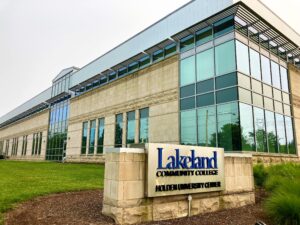If community colleges need another reason to re-evaluate their strategy of providing training and education for low-wage work, here it is. Credit card debt is rising among middle-income Americans, according to Primerica’s 2Q Middle-Income Financial Security Monitor. The survey, which Primerica conducts each quarter, shows that middle-income earners are using credit cards to cover the impacts of inflation.
The survey defined “middle income” workers as those making between $30,000 and $130,000 dollars. Previous surveys had defined middle income workers as those making between $30,000 and $100,000 annually. Expanding the definition of middle income reflects inflation and the increasing difficulty of remaining financially healthy.
Thirty-six percent of Americans say they’re using their credit cards more this year. That’s an increase of 5 percentage points over last year’s 2Q survey. One-third of respondents said their credit card debt grew over the past year, an increase of four percentage points over 2022’s survey. More than three out of four survey respondents said they’ve been cutting back on essential spending to cope with inflation. Nearly half of survey respondents said that they needed to pause their saving plan in order to pay for monthly expenses. Among those whose earnings are on the lower side of the bracket, nearly three-fourths said they needed to stop saving for the future to manage their current expenses.
Training people for low-wage work may be a boon to certain employers, but it doesn’t help individuals. It also provides no benefits to the community that supports a community college via some extraordinarily generous tax assessments. If the purpose of the community college is to encourage economic prosperity, we must consider every low-wage program in the catalogan absolute failure-of-mission.
Training for low-wage work is a bad strategy
It gets worse. When a community college graduates scarcely more than one in four students over an eight year period, that also must be looked at as a loss. Unfortunately for this community, our elected trustees ask no questions of the administration; apply no pressure to improve the institution’s performance; and look for no alternatives to long-term mediocrity.
Our trustees are completely satisfied with inadequacy. They’re ok with graduates who can’t make more than $40,000 per year ten years after graduation. They’re fine with a stunning lack of new technical and occupational programs, despite critical needs in key economic sectors – like energy and agriculture. And worse, they’re fine with wasting millions of operational dollars each year on a quasi-private health club that cannot even pay for itself – and never has.
“A fish rots from the head down.”
Photo Credit: Laszlo Becskereki , via Flickr




















